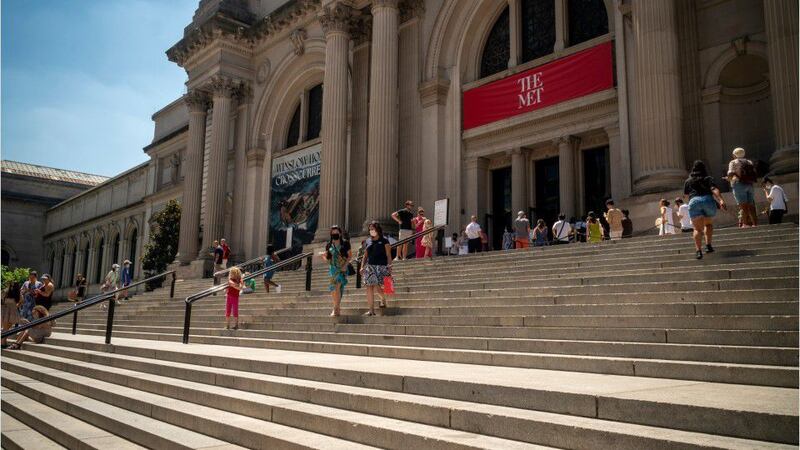NEW YORK — Investigators in New York seized 27 artifacts from the Metropolitan Museum of Art, asserting that the objects from ancient Rome, Greece and Egypt had been looted.
According to the Manhattan District Attorney’s Office, investigators used three search warrants to seize the items, valued at $13.2 million, that were being housed at the New York City museum, The New York Times reported.
Twenty-one of the items will be returned to Italy and six will be repatriated to Egypt in ceremonies scheduled for next week, according to the newspaper.
“We have two repatriation ceremonies next week, one with Italy and one with Egypt,” a spokesperson for District Attorney Alvin Bragg told CNN. “Fifty-eight objects will go back to Italy, 21 from the Met. Sixteen to Egypt, six from the Met.”
Investigators in New York have seized 27 ancient artifacts valued at more than $13 million from the Metropolitan Museum of Art, asserting that the objects, acquired to showcase the glories of ancient Rome, Greece and Egypt, had been looted. https://t.co/kIyVCcibic pic.twitter.com/diqn1eXINb
— The New York Times (@nytimes) September 2, 2022
The value of the 21 Italian pieces, which were seized in July, was estimated at $10 million, the Times reported. The six items from Egypt, seized in February and May, were valued at $3.2 million, according to the newspaper.
Bragg’s office did not specify where the other artifacts were seized from and did not say which artifacts were seized, according to CNN.
The seizure was part of a larger investigation from the district attorney’s office, which has already recovered nearly 2,000 stolen artifacts, WABC-TV reported.
Some of the items were suspected to reach the museum through Gianfranco Becchina, who ran a gallery in Switzerland before being investigated for illegal dealings by the Italian government in 2001, the Times reported.
Eight of the items seized from the museum were acquired directly from Becchina, according to the district attorney’s office.
Becchina has been convicted of receiving stolen antiquities by Greece. In 2011 after a decade-long probe, 6,300 Greco-Roman artifacts were confiscated from him in 2011 when an Italian judge determined the items had been looted as far back as the early 1970s, the Times reported. But the criminal charges against Becchina were dismissed on the grounds that the statute of limitations had expired.
“It should be no secret to collectors, art museums and auction houses that they may be in possession of pieces from known traffickers that were illegally looted,” Bragg in a statement. “The investigations conducted by my office have clearly exposed these networks and put into the public domain a wealth of information the art world can proactively use to return antiquities to where they rightfully belong.
“Our investigations, which have led to the repatriation of nearly 2,000 objects, will continue.”
In a statement, museum officials said that information on the Italian objects had only recently been made available to the museum by the district attorney’s investigators, the Times reported. Officials added that the Metropolitan Museum has been “fully cooperative,” and that its acquisition reviews have become more rigorous in recent decades.
“The norms of collecting have changed significantly in recent decades,” museum officials said. “And The Met’s policies and procedures in this regard have been under constant review over the past 20 years.”
One of the most notable items confiscated from the Met was a drinking cup from 470 B.C. and valued at $1.2 million that was bought directly from the Becchina gallery in 1979, the Times reported. Another item, a statuette of a Greek goddess from about 400 B.C. and valued at $400,000, was a 2000 gift from Robin Symes, a British antiquities dealer, according to the Los Angeles Times.
In a statement, the Met said, “Each of these objects has unique and complex circumstances, and with all, The Metropolitan Museum of Art has been fully supportive of the Manhattan district attorney’s office investigations.”
©2022 Cox Media Group








